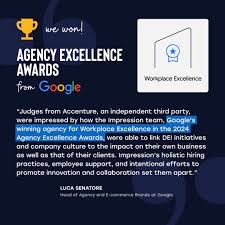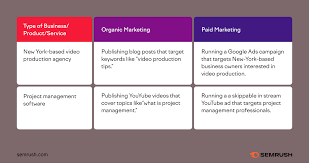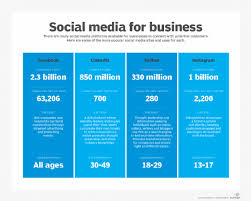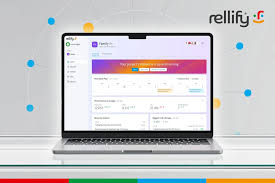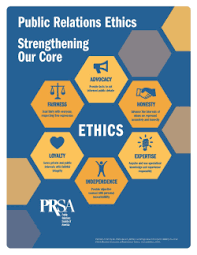Crafting Lasting Impressions: The Expertise of Impression Agency
Impression Agency: Making a Lasting Impact in the Digital World
Impression Agency is a leading digital marketing firm that is revolutionizing the way businesses connect with their audiences online. With a focus on creativity, innovation, and results, Impression Agency has established itself as a trusted partner for companies looking to make a lasting impression in the digital landscape.
At Impression Agency, we understand that in today’s fast-paced world, capturing and retaining the attention of your target audience is more challenging than ever. That’s why we offer a comprehensive range of digital marketing services tailored to meet the unique needs and goals of each client.
Our team of experienced professionals at Impression Agency excels in areas such as search engine optimisation (SEO), pay-per-click (PPC) advertising, social media management, content marketing, and web design. We combine cutting-edge technology with creative expertise to deliver campaigns that drive engagement, increase brand awareness, and ultimately boost conversions.
What sets Impression Agency apart is our commitment to delivering measurable results. We believe in transparency and accountability, providing our clients with detailed analytics and reports to track the performance of their campaigns. By continuously analysing data and making data-driven decisions, we ensure that our clients achieve their digital marketing objectives.
Whether you’re a start-up looking to establish your online presence or an established company seeking to enhance your digital strategy, Impression Agency has the expertise and resources to help you succeed. Our personalised approach ensures that we understand your business inside out and develop strategies that align with your brand identity and objectives.
Join hands with Impression Agency today and let us help you leave a lasting impression on your target audience in the competitive digital world.
Exploring Impression Agency: Answers to Common Questions on Digital Marketing Services
- 1. What services does Impression Agency offer?
- 2. How can Impression Agency help my business stand out in the digital landscape?
- 3. What sets Impression Agency apart from other digital marketing firms?
- 4. Can Impression Agency assist with search engine optimisation (SEO) for my website?
- 5. Does Impression Agency provide social media management services?
- 6. How does Impression Agency measure the success of its digital marketing campaigns?
- 7. Is web design part of the services offered by Impression Agency?
- 8. What industries does Impression Agency specialise in working with?
- 9. How can I get started with Impression Agency to improve my online presence?
1. What services does Impression Agency offer?
Impression Agency offers a comprehensive range of digital marketing services tailored to meet the diverse needs of businesses seeking to enhance their online presence and engage with their target audience effectively. Our services include search engine optimisation (SEO) to improve website visibility and organic traffic, pay-per-click (PPC) advertising for targeted online campaigns, social media management to build brand awareness and engagement, content marketing strategies to create compelling and valuable content, and web design services to ensure a seamless user experience. With a focus on creativity, innovation, and results-driven approaches, Impression Agency is committed to helping businesses achieve their digital marketing goals and make a lasting impact in the competitive online landscape.
2. How can Impression Agency help my business stand out in the digital landscape?
At Impression Agency, we can help your business stand out in the digital landscape by leveraging our expertise in strategic digital marketing techniques. Our team of professionals crafts tailored strategies that are designed to enhance your online visibility, engage your target audience effectively, and drive meaningful results. From search engine optimisation (SEO) to creative content marketing and impactful social media campaigns, we employ a holistic approach to elevate your brand presence and differentiate you from competitors. By focusing on innovation, creativity, and data-driven insights, Impression Agency ensures that your business not only stands out but also thrives in the dynamic digital environment.
3. What sets Impression Agency apart from other digital marketing firms?
At Impression Agency, our commitment to excellence and innovation sets us apart from other digital marketing firms. We pride ourselves on our personalised approach, where we take the time to truly understand each client’s unique needs and goals. Our team of experienced professionals combines creative expertise with cutting-edge technology to deliver tailored solutions that drive results. Transparency, accountability, and a focus on measurable outcomes are at the core of our ethos, ensuring that our clients receive the highest level of service and see tangible improvements in their digital marketing performance. When you choose Impression Agency, you’re choosing a partner dedicated to helping your business stand out in the competitive digital landscape.
4. Can Impression Agency assist with search engine optimisation (SEO) for my website?
Yes, Impression Agency specialises in search engine optimisation (SEO) and can certainly assist with improving the visibility and ranking of your website on search engine results pages. Our team of SEO experts at Impression Agency employs proven strategies and best practices to enhance your website’s performance in organic search results. From keyword research and on-page optimisation to technical SEO audits and link building, we have the knowledge and skills to help your website attract more organic traffic and reach a wider audience online. Contact Impression Agency today to explore how we can elevate your website’s SEO performance and drive sustainable growth for your business.
5. Does Impression Agency provide social media management services?
Yes, Impression Agency offers comprehensive social media management services to help businesses effectively engage with their target audience and build a strong online presence. Our team of experienced professionals specialises in creating and implementing social media strategies tailored to each client’s unique goals and requirements. From content creation and scheduling to community management and analytics tracking, Impression Agency ensures that your social media channels are optimised for maximum impact and results. With our expertise in social media management, we can help elevate your brand’s visibility, drive engagement, and ultimately enhance your overall digital marketing strategy.
6. How does Impression Agency measure the success of its digital marketing campaigns?
At Impression Agency, we measure the success of our digital marketing campaigns through a comprehensive approach that focuses on key performance indicators (KPIs) and data-driven insights. We utilise advanced analytics tools to track metrics such as website traffic, conversion rates, click-through rates, engagement levels, and return on investment (ROI). By analysing these metrics in real-time and over time, we can assess the effectiveness of our campaigns and make informed decisions to optimise performance. Our commitment to transparency means that we provide our clients with detailed reports and regular updates on campaign progress, allowing them to see the tangible results of our efforts and understand the impact on their business goals.
7. Is web design part of the services offered by Impression Agency?
Yes, web design is a core service offered by Impression Agency. Our team of skilled designers and developers are experts in creating visually appealing, user-friendly websites that not only reflect your brand identity but also drive engagement and conversions. Whether you need a new website from scratch or want to revamp your existing site, Impression Agency can tailor a bespoke web design solution to meet your specific needs and objectives. With a focus on creativity, functionality, and user experience, we ensure that your website stands out in the digital landscape and delivers a seamless online experience for your target audience.
8. What industries does Impression Agency specialise in working with?
Impression Agency specialises in working with a diverse range of industries, leveraging our expertise and tailored approach to meet the unique needs of each sector. Our team has extensive experience collaborating with businesses in sectors such as technology, healthcare, finance, e-commerce, hospitality, and more. We understand the specific challenges and opportunities that different industries present and are committed to developing customised digital marketing strategies that resonate with target audiences and drive tangible results. Whether you operate in a traditional industry or a cutting-edge sector, Impression Agency has the knowledge and skills to help your business thrive in the digital landscape.
9. How can I get started with Impression Agency to improve my online presence?
To get started with Impression Agency and enhance your online presence, simply reach out to us through our website or contact our team directly. Our experienced professionals will schedule a consultation to understand your business goals, target audience, and current online presence. From there, we will work closely with you to develop a tailored digital marketing strategy that aligns with your objectives. Whether you’re looking to improve your search engine visibility, engage with your audience on social media, or enhance your website’s performance, Impression Agency has the expertise and resources to help you achieve success in the digital realm.



